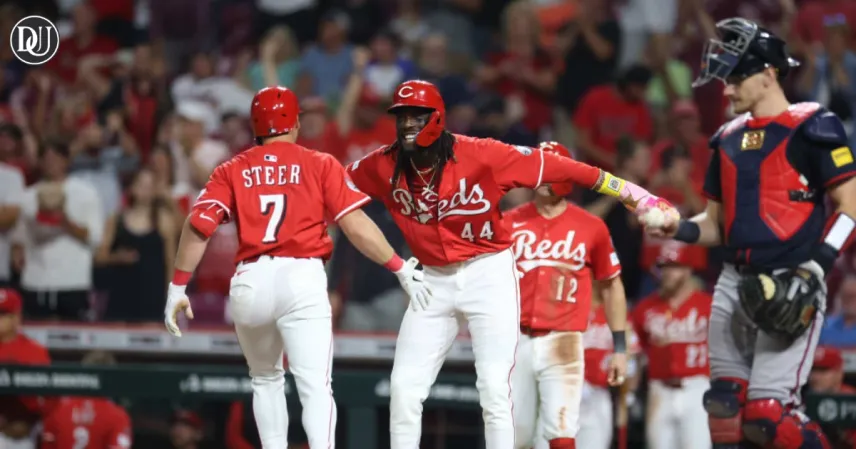Remember that ESPN headline about the Reds grabbing Zack Littell? Got me thinking about the whole idea of 'reds' in general. Just one word, you know? But it carries so much weight, so many different connotations depending on whether you're talking baseball or, like, history. Seriously, at 2 AM, your brain just starts connecting random dots.
⚾️ Cincinnati's Calculated Moves
Cincinnati really went all-in on that trade, didn't they? Littell seems like a good pickup for depth, especially for a bullpen that needed a bit more stability. It’s a smart, low-key kind of move but indicative of a bigger strategy they've been running with. They're not just throwing money at big names, which is kinda what you expect from some teams. Instead, it feels more like they’re playing the long game – looking for undervalued assets, fitting pieces into a larger puzzle. You see this across sports, honestly. It’s this whole analytics-driven approach, finding guys who might not have had the best stats on paper but have underlying metrics that suggest potential.
📊 The Analytics Edge
Is that really surprising anymore? Everyone's doing it, but some teams just do it better. The Reds, at least from what I've observed, seem to be leaning heavily into that. They’re identifying pitching talent, bringing in guys who can either start or come out of the bullpen, giving them flexibility. It's not about one superstar acquisition; it's about building a solid core, strengthening every aspect of the roster bit by bit. That takes patience, and a certain belief in your scouting and development system. Could be wrong, but it feels like they’re building something sustainable, not just a flash in the pan.
🌍 Beyond the Diamond: The Word "Reds"
And then my brain just jumped, you know, from the Cincinnati Reds to... well, reds in the broader sense. Like, the political "Reds." It’s such a loaded term, especially historically. It immediately conjures up images of Cold War propaganda, different ideologies, flags – it’s wild how a color got so intertwined with a political movement, right? It makes you pause and think about how language evolves, how certain words become shorthand for entire concepts or groups of people. It’s more than just a color sometimes; it's an identity, a perceived threat, a whole worldview encapsulated in one simple word.
📜 Echoes of History
I mean, think about it. For decades, "red" was basically synonymous with communism for a huge part of the Western world. Propaganda certainly leaned into that. It wasn't just a color; it was an identity, a perceived threat, a whole worldview encapsulated in one simple word. And the irony is, some of those original movements started with ideas that, on paper, sounded like they were about equality or workers' rights, but then they often spiraled into something else entirely. You see the historical baggage, the fear it invoked for generations. It’s a messy history, honestly, and it’s still referenced sometimes when talking about political alignments, even today, though maybe not as overtly.
🤔 Context is King
But then you come back to the baseball team, and it’s just... a team name. No political baggage there, obviously. It’s just their color, their identity in a completely different context. It makes you realize how powerful context is for language. The same word can be totally benign, even exciting, in one scenario, and incredibly controversial or historically heavy in another. Words are just symbols, but what we attach to them, that’s where the real meaning lives. It’s kinda deep for 2 AM, I know, but it’s true. It's fascinating how our brains compartmentalize these meanings, allowing us to seamlessly switch between them depending on the conversation.
🚀 Future Trajectories for the Redlegs
Getting back to the baseball Reds for a minute – this past year, they showed flashes, didn't they? That youthful energy, the way they surprised everyone early on. It felt different. Littell, and other moves they've made, suggest they're not content with just being a "fun young team." They actually want to compete. They’re buying into the process, I guess. Building a consistent contender from within, supplementing with smart trades. It’s a marathon, not a sprint, but they seem to be setting themselves up for a good run. They need to keep developing their young talent, obviously, but the pieces are starting to fit. Could be wrong, but that's my vibe. It's going to be interesting to watch them this season.
It's funny how a single headline about a baseball trade can just kick off this whole internal monologue about linguistics, history, and the power of a single word. Anyway, that's my 2 AM thought dump for you. Hope you're not asleep yet.








